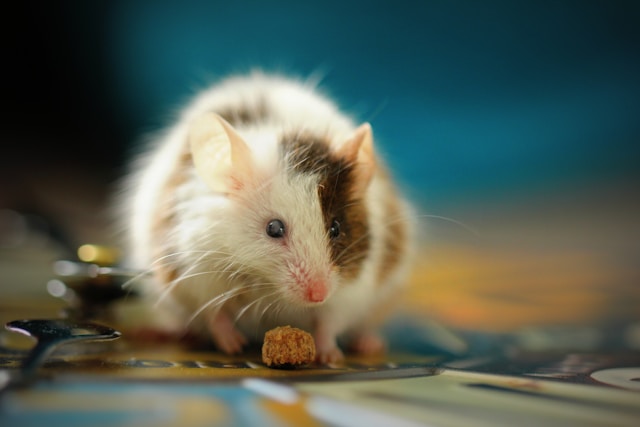Badass vs Dumbass
Master your Financial Kung Fu to be one and not the other.

"Imagine this: $8 a day is $240 a month or almost $3,000 a year, which could be invested and compounded over time."
- Sifu
Ronin: Sifu! Why does my brain keep telling me that I deserve a little treat every time I pass a coffee shop? Is this the universe rewarding me for existing?

Photo by Nathan Dumlao on Unsplash
Sifu: Ha! That is your “treat brain” at work—an insatiable little beast. Just for fun, let’s call it “Gumby”.
Ronin: Hahaha! One of my favorite characters from my childhood – no wonder I want to constantly feed it – like a pet!
Treat Brain: The Dopamine Hit
Sifu: Makes total sense, #1. Gumby craves dopamine, the neurotransmitter of joy. Every small purchase gives you a hit, like a mouse pressing a button for cheese.
Ronin: So, you’re telling me I’m just a rat in the maze of capitalism, chasing espresso instead of cheddar.

Photo by Sandy Millar on Unsplash
Sifu: If you are not careful, these small indulgences will drain your savings faster than a leaky faucet. FIRE demands discipline, not lattes.
Savings? Never Heard of Her
Ronin: Okay boss, but seriously, how much damage can a daily joe do? I mean, it’s a small price for my sanity, right?
Sifu: Imagine this: $8 a day is $240 a month or almost $3,000 a year, which could be invested and compounded over time. Instead, you’re paying to temporarily pacify Gumby while your future self watches in absolute horror from the sidelines. You a fan of “It” or something, son?
Ronin: Pfffft, no man! Horror flicks scare the shit out of me. I’ll stick with Rom-Com’s, thank you! Future me can chill out. He’s probably sitting on a beach, sipping a piña colada. Oh wait, he can’t afford one because he spent all his money on gourmet lattes. Dang!

Photo by Alev Takil on Unsplash
Sifu: Bingo Bango boy! Gumby, as cute and entertaining as he is, will rob you blind, one small purchase at a time. You must balance indulgence with saving, or else piña coladas will only exist in your daydreams.
Ronin: So it’s a double whammy? I’m drinking overpriced wakey juice and depriving myself of sunset elixirs when I retire!
Compounding: The Long Game
Ronin: Ok ok, I get it, Master. But what’s a little treat every now and then? It’s not like I’m draining my bank account.
Sifu: Every dollar you spend on small pleasures is a dollar that could be working for you. Compounding interest is the eighth wonder of the world. Meanwhile, Gumby delays your ticket to financial independence.
Ronin: Oh crap. Are you saying “Treat Yo’ Self” mornings are dead?
Sifu: Hmmm. I’m in no way suggesting you don’t deserve rewards for being disciplined in your FIRE journey. Maybe think of it this way. Gumby needs to be fed – I get that. Perhaps don’t overfeed that guy. Imagine stuffing him with everything he wants to eat and drink. What happens to him?
Ronin: Well dude. Gumby is made of flexible clay, so I think his belly would blow up like a balloon and then he would explode!
Sifu: Who said you were a dumbass? Oh wait … that was me! Hahaha. You hit the nail on the head. Gumby is no good to you if you kill him, my man!
Ronin: Dead Gumby?? Noooooooo!
Avoiding Frugal Fatigue with Balance
Ronin: So, what about “frugal fatigue”? If I put Gumby on a diet of cold-water sandwiches, I’ll end up snapping and blowing my entire retirement fund on a 800 horsepower racecar. Hee-hee.
Sifu: Balance is key. You can indulge Gumby occasionally, but only if it doesn’t sabotage your FIRE progress. Think of it like a controlled burn—a small flame that keeps the forest from becoming a raging inferno.
Ronin: Oy! Gumby doesn’t play with real fire. My little man would dissolve into a pool of green mud. Not cool, bro! But I get your drift. Gumby gets a treat every now and then, and within my budget. Win-win, right boss?
Sifu: Very wise for such a dingdong dumbass, Ronin.
Ronin: Easy … easy. I have feelings, bro.
Sifu: Hahaha. Opt for low-cost rewards. You’ll feel indulged without the financial hangover.
Ronin: Roger that. I’ll treat myself to a $2 donut instead of a $8 hit of caffeine. My budget is officially saved. Yee-haw!
Sifu: Excellent, Hos. It seems you figured out how to keep your best friend, Gumby, happy without blowing that sucker up!
Ronin: Yes sir! Hey, maybe I’ll just train Gumby to enjoy free things—like air, sunlight, and…uh…compliments from strangers.
Sifu: Wow, next level ingenuity, #1. What do you want beside the “A”? I know, I know – loaded poutine for lunch … on me, right?
Ronin: A gentleman and a scholar – you da man, boss!
Sifu: Don’t you forget it, Pokey.
Ronin: Hahaha!
“Treat brain” is a growing trend, especially on social media platforms like TikTok, where people indulge in small, often frivolous purchases that give them a quick mood boost. The concept is rooted in neuroscience—these little treats release dopamine, a neurotransmitter associated with feelings of pleasure and happiness. While treating yourself has its benefits, it’s important to recognize that it also comes with potential downsides. Let’s break down the pros and cons of “treat brain.”
Pros of Treat Brain
1. Quick Dopamine Boost
2. Adds Joy to Daily Routine
3. Improves Productivity
4. Mindful Self-Care
5. Stress Relief
6. Doesn’t Require Big Spending
7. Encourages Positive Behavior
Cons of Treat Brain
1. Risk of Overindulgence
2. Temporary Happiness
3. Encourages Instant Gratification
4. Can Distract from Bigger Goals
5. Creates a Habit of Consumption
6. Social Media Influence
Final Thought: Is Treat Brain Worth It?
“Treat brain” has its upsides, like providing a quick boost of happiness and helping you stay motivated. However, it’s important to find balance. While occasional indulgences can improve your mood and well-being, overindulgence or mindless spending can create new challenges, such as financial strain or a reliance on instant gratification. Keep your treats small, intentional, and mindful to maximize the benefits without falling into the traps of overspending or temporary happiness.
This article is for informational purposes only. It should not be considered Financial or Legal Advice. Not all information will be accurate. Consult a financial professional before making any significant financial decisions.